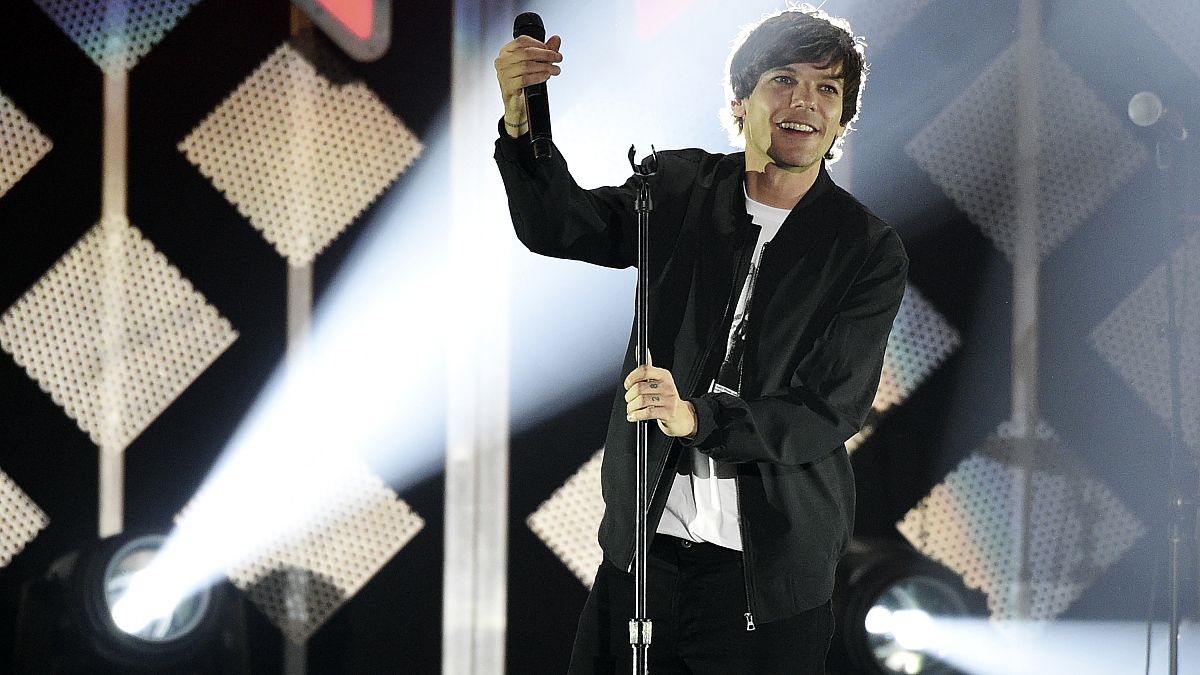The first Northern Music Awards were held last night in Manchester as part of a drive to highlight the level of quality music being created outside of the UK’s capital.
Dubbed the ‘Brit Awards of the North’, the Northern Music Awards (NMAs) were organised by the music therapy charity Nordoff & Robbins and held in Manchester’s Albert Hall.
It’s intended to become an annual event and represents a concerted effort to direct interest away from the wealthier areas of the UK, where arts funding is in greater supply, and shine a light on northern talent, as well as fundraise for the charity’s music therapy initiatives.
Nordoff & Robbins have also held the Silver Clef Award since 1976 in London, also as a fundraising initiative with grime artist Stormzy as the most recent recipient of the award.
At the first NMAs ceremony, nominees and audience members were treated to performances by the bands English Teacher, The K’s, alongside artists Antony Szmierek, Lisa Stansfield, and Corteeners frontman Liam Fray.
Among the winners of the inaugural awards, the Doncaster-born former member of One Direction Louis Tomlinson took home Artist of the Year. Much like the other members of the successful boy band, Tomlinson went solo and released his second album ‘Faith in the Future’ in 2022.
Mancunian legends the Courteeners took home Band of the Year, most likely off the back of the rerelease of their pivotal ‘St. Jude’ album for its 15th anniversary in 2023, which charted at No. 1 in the UK.
Melanie C of the Spice Girls also was awarded the Special Recognition Award while Lisa Stanfield won the Northern Icon Award.
Away from the stalwarts of the UK’s northern music scene, bright young talents were also given centre stage with band English Teacher winning Newcomer of the Year. We pipped English Teacher as one to watch in our ESNS diary earlier this year.
Merseyside band The K’s won Breakthrough Act of the Year while the Reytons were named Disruptor of the Year for selling their independently-released album in pop-up shops in a Sheffield shopping centre, reports the BBC.
At the NMAs ceremony, Manchester Mayor Andy Burnham was a noted presence and was quoted saying “there’s no place like the north.” Burnham has been a politically contentious figure in the UK as a left-wing politician that has consistently stood against the way politicians in Westminster sideline the north of the country.
Burnham was joined by Salford Mayor Paul Dennett who told the Manchester Evening News: “This is a really important agenda for Greater Manchester. We’ve long understood the importance of the creative industries here and we’ve invested in that at a time when other parts of the country haven’t invested as much as we have.”
Both mayors’ presence underlines the cultural divide between the two ends of the UK.
The UK, and England particularly, is often bifurcated by its poles based on gulfs between culture, wealth, and class.
In truth, the actual distinction is far more nuanced, with many northerners rightly rueing the way London and its surrounding counties are far wealthier on average, while neglecting to recognise the huge wealth disparity within the capital and the breadth of the south that is in a similar economic situation.
Nonetheless, there is a notable cultural sense of the north of England as a separate entity to the south in a similar fashion to cultural divisions in Italy (except in the inverse) and Germany (except along its East-West orientation).
Analysis from the Financial Times in 2023 found that while the GDP for the UK would drop by 14% if London were not included in the count.
It’s common for European countries to have one major financial centre city that brings in a larger proportion of GDP, but the UK’s reliance on London put the rest of the country in stark terms relative to other nations.
By comparison, Germany and the Netherlands wouldn’t face such a huge drop in GDP if their financial centres – Munich and Amsterdam – disappeared. According to the research, France is in a similar position with Paris accounting for an outsized proportion of the country’s resources.
While this is a largely economic point, the greater context of GDP is often in how culture prevails. Countries with singular financial centres are more likely to see an unequal cultural investment into wealthier cities. They are also more likely to have higher numbers of citizens with the disposable money to spend on culture, creating a self-perpetuating system of culture thriving in wealthier locations.
The NMAs is unlikely to unseat the dominance of London over the UK’s culture anytime soon. But awards shows highlighting homegrown talent from outside of these financial centres is a clever way to renew interest in culture across the entire country.
Maybe the countryside of France, the east of Germany, and the south of Italy should take note.




